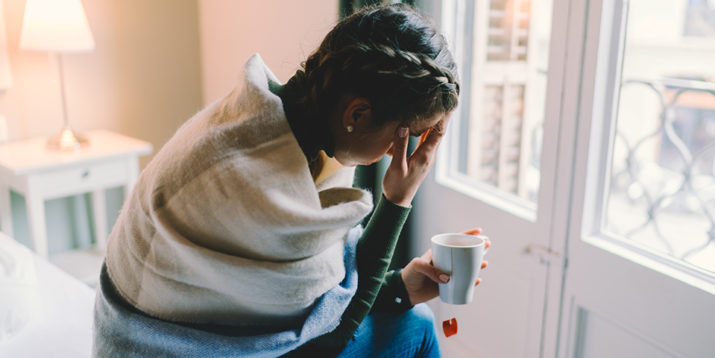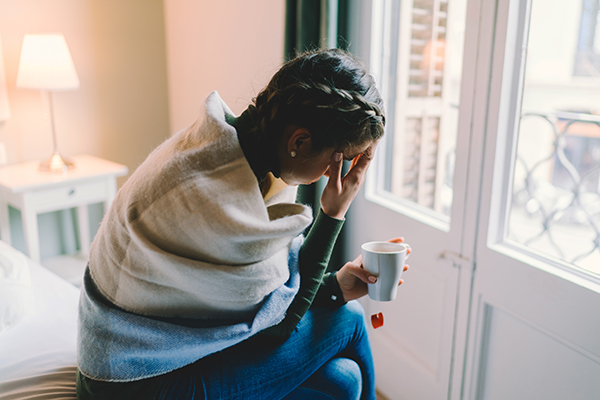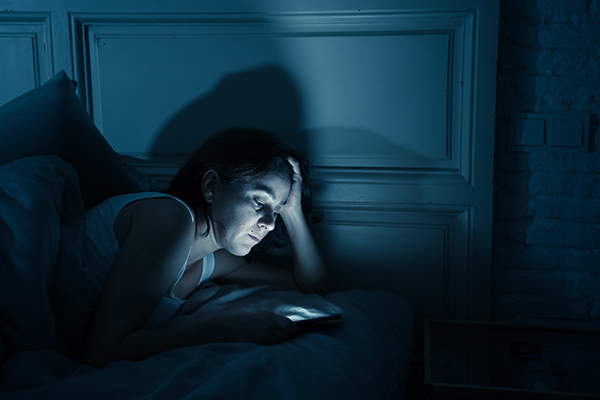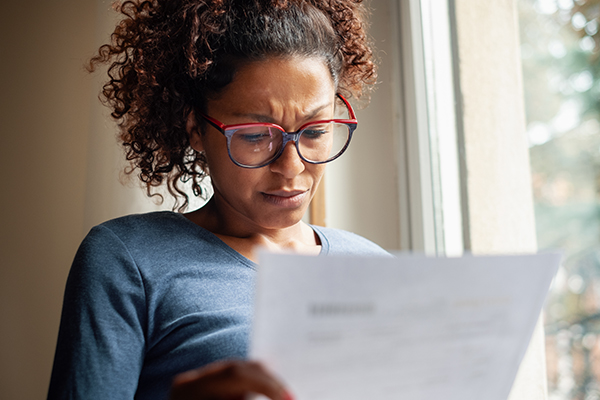Feeling Stressed? Watch for These 6 Signs of Anxiety

If you’re feeling a little more tense than usual right now, you’re not alone. It’s been a nail-biting few months.
But if you’re worrying so much that it’s impacting your health or making it hard to function, you may be dealing with anxiety — or even an anxiety disorder.
It’s normal to feel nervous before a presentation at work or moving to a new city.
But anxiety can make you feel uneasy even when there’s no specific stressor. And anxiety disorders are surprisingly common, affecting nearly one in five adults in the U.S.
Think you may have anxiety? Here are some common signs of anxiety to look out for.
1. You’re Worrying Constantly
One of the most common signs of anxiety is “excessive worrying about typical everyday situations,” says Brian Wind, Ph.D., clinical psychologist, chief clinical officer at JourneyPure, and former co-chair of the American Psychological Association.
It’s normal to feel worried or stressed when life gets hectic.
But if you feel like you’re constantly on edge, or you’re stuck in a thought loop cycle, your worrying may have ventured into “excessive” territory.

2. You Can’t Concentrate
One of the first signs of anxiety may be an inability to focus because your mind is racing in a million different directions.
If you’re spending so much time worrying about “what-ifs” or Googling weird medical symptoms that it’s affecting your productivity, you may be dealing with anxiety.
Anxiety “makes it difficult to concentrate on simple tasks,” Wind says.
In fact, research suggests that difficulty concentrating may be one of the key criteria in telling the difference between garden-variety stress and an anxiety disorder.

3. You’re Having Trouble Sleeping
“Difficulty falling asleep at night and racing thoughts are also characteristic symptoms and signs of anxiety,” says Nikola Djordjevic, M.D., a board-certified family physician and medical advisor at Health Careers.
Research suggests insomnia is a common symptom among those who have anxiety disorders.
If you have trouble falling asleep or staying asleep, or you wake up often throughout the night feeling anxious, you may be experiencing anxiety-induced insomnia.
4. You’re Sweating For No Reason
One of the physical signs of anxiety is “excessive sweating, usually in the palms of your hands and soles of your feet,” Djordjevic says.
So how can you tell if your sweating might be caused by anxiety? Context.
If you’re sweating because it’s hot outside or you just finished an intense workout, that would make sense given the circumstances.
But if you feel sweaty or clammy for no apparent reason, that can be a sign of anxiety.
5. You’re Bailing On Plans
If you’re finding excuses to opt out of parties, events, and other social situations out of fear, worry, or embarrassment, there’s a possibility you could be experiencing social anxiety.
“The signs of social anxiety are when people can feel a physical change in their body and mental disposition when faced with a social situation,” Djordjevic says.
Some people are naturally shy or introverted. But you’ve developed an intense fear of being in social scenarios, you may want to talk to a mental health professional.

6. You Feel Agitated
Anxiety can cause physical symptoms like shaky hands, a racing pulse, or feelings of restlessness or agitation, Wind says.
In some cases, these symptoms may interfere with other aspects of your life, like your performance at work or your sleep habits.
You may also experience “difficulty swallowing, as if you have a cotton ball stuck in your mouth, making it uncomfortably dry,” Djordjevic says. You may have experienced dry mouth before a speech or presentation — but if it seems to be occurring randomly, that can be a sign of anxiety.
What Is an Anxiety Attack?
For some people, anxiety symptoms can peak suddenly and cause an anxiety attack, also known as a panic attack.
Anxiety attacks are surges of overwhelming panic that may seem to come out of nowhere.
“The signs of a panic attack usually start with a feeling of indescribable fear as if something terrible is about to happen,” Djordjevic says.
“The first panic attack can be a traumatic experience since all the physical symptoms — including palpitations and increased heart rate — serve to further compound the fear that something bad really is happening.”
Physical symptoms of an anxiety attack may include:
- increased heart rate
- sweating
- chills
- shaking or trembling
- difficulty breathing or feeling like you are choking
- nausea or stomach pain
- chest pain
- weakness or dizziness
- tingling or numb hands
Of course, many of these symptoms can also be a sign of a more serious medical issue — so if you haven’t experienced an anxiety attack before, talk to a doctor.
The good news?
Symptoms of anxiety can often be managed through natural solutions like yoga, meditation, breathing techniques, and exercise. Add these healthy practices to your wellness routine, and you may start to notice fewer signs of anxiety.
